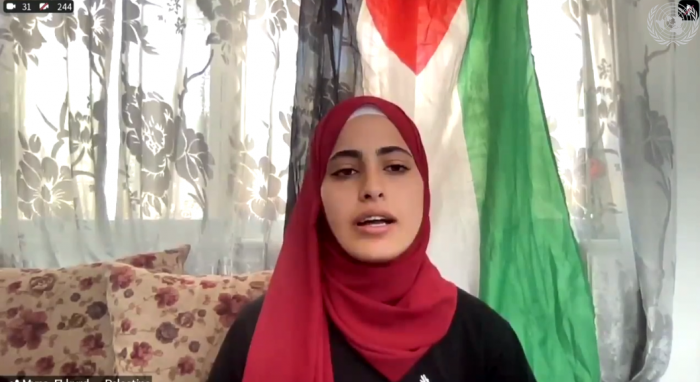Photo: UN WebTV

HRC | Historic resolution addressing the Palestinian people on both sides of the Green Line
ISHR welcomes the adoption of a historic resolution during the 30th Special Session of the UN Human Rights Council establishing the first-ever ongoing commission of inquiry to address human rights violations in Israel and the Occupied Palestinian Territory, including by examining Israeli violations targeting the Palestinian people on both sides of the Green Line and root causes of Israel’s settler colonialism and apartheid.
The resolution was adopted with 24 votes in favour, 9 against and 14 abstentions.
“Council members who voted to shield Israel from scrutiny have shown their disregard for advancing accountability and justice, and in particular EU States who once again exposed their double standards in addressing country situations at the Council”, said Salma El Hosseiny, ISHR’s HRC Programme Manager.
During the debate, Palestinian woman human rights defender Budour Hassan, on behalf of ISHR, delivered a joint statement urging the Council to recognise that Israel is practicing the crime of apartheid against the entirety of the Palestinian people and to support a resolution establishing an ongoing Commission on Inquiry to report on all violations of human rights and humanitarian law, including the escalating attacks against Palestinians on both sides of the Green Line since April 2021. She urged the Council to mandate a mechanism to address the root causes of Israel’s institutionalised regime of racial domination and oppression over the Palestinian people in line with the 2019 Concluding Observations on Israel by the UN Committee on the Elimination of Racial Discrimination (CERD).
We highlighted in the joint statement that the general strike led by Palestinians on both sides of the green line on 17 May, joined also by Palestinian refugees in the diaspora, articulated Palestinians’ collective resistance. To quell this growing popular resistance, Israel has resorted to mass arrests and campaigns of intimidation including against human rights defenders within the green line, in Jerusalem, and in the West Bank. All this happens while the closure on Gaza enters its 15th year, a period during which Israel has launched four wars on the Strip, systematically and deliberately flouting international humanitarian law by targeting civilians and civilian infrastructure.
ISHR also supported a statement delivered by Maisaa Abo El-Ouf, a Palestinian of Gaza who told the Council of her experience being trapped under the rubble when her home was bombed by Israel.
The debate was opened by Sheikh Jarrah resident and activist Muna a Al-Kurd who has been peacefully protesting, along with other members of the community and activists, against illegal eviction orders to forcibly transfer them from their homes.
A broad coalition of civil society including 120 regional and international organisations, and over 3000 individuals from 77 countries, had urged the Council to establish the ongoing Commission of Inquiry.
ISHR will continue to work together with other civil society organisations to ensure accountability and that the Council continues to be informed by the voices and demands of human rights defenders from the region.
Read here an analysis of the Special Session by CIHRS.
Watch the recording of the joint statement here.
Contact: [email protected]
